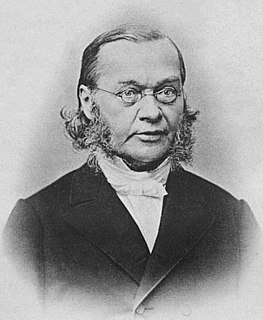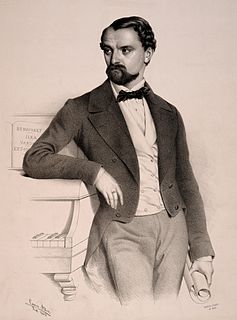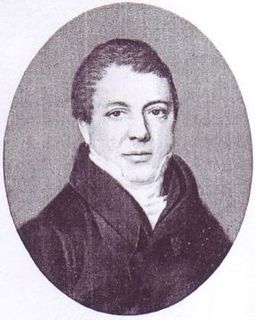
Johann Karl Ehrenfried Kegel (October 3, 1784 - June 25, 1863) was a German agronomist and explorer of the Kamchatka Peninsula. He died in Odessa in 1863.

Johann Karl Ehrenfried Kegel (October 3, 1784 - June 25, 1863) was a German agronomist and explorer of the Kamchatka Peninsula. He died in Odessa in 1863.
Kegel was born in Rammelburg (now part of the town Mansfeld) and studied in Copenhagen. In the winter of 1826/1827 he went to Saint Petersburg. In 1841 he was sent by the Russian government to Kamchatka to investigate possibilities of agriculture and mining in that region. He traveled through Siberia, embarked in Okhotsk, only to arrive shipwrecked in Kamchatka.
From Petropavlovsk, he undertook various voyages of several months into the heart of the country in order to examine the soil conditions and perform trial sowing. He travelled during the summer, even though traveling during this time was extremely strenuous and paths virtually impassable. His reports describe in detail flora and fauna, soil, geology as well as the life of the local population. Kegel discovered mineral resources and saw the potential wealth of the country if managed well. In addition, he made proposals for improving the living conditions of the indigenous population and criticized oppression.
Kegel was loathed by the corrupt local administration, who were not interested in the development of the country but rather in their own profit from fur trade. When they realized that Kegel was incorruptible, he was victimized whenever possible. Still he succeeded in accomplishing his work and returned - in poor state of health - in 1847. His reports were the most precise ones of this era, but could not be published in his lifetime, since this would have meant loss of freedom or worse.

Ernst Wilhelm Theodor Herrmann Hengstenberg, was a German Lutheran churchman and neo-Lutheran theologian from an old and important Dortmund family.

Friedrich Benjamin Graf von Lütke, more commonly known by his Russian name Fyodor Litke, was a German-Russian navigator, geographer, and Arctic explorer. He became a count in 1866, and an admiral in 1855. He was a corresponding member (1829), Honorable Member (1855), and President (1864) of the Russian Academy of Science in St. Petersburg. He was also an Honorable Member of many other Russian and foreign scientific establishments, and a corresponding member of the French Academy of Science in Paris.

Baron Ferdinand Friedrich Georg Ludwig von Wrangel was a Baltic German explorer and seaman in the Imperial Russian Navy, Honorable Member of the Saint Petersburg Academy of Sciences, a founder of the Russian Geographic Society. He is best known as chief manager of the Russian-American Company, in fact governor of the Russian settlements in present-day Alaska.

Karl Viktor Müllenhoff was a German philologist who specialized in Germanic studies.
Kegel may refer to:

A Burschenschaft is one of the traditional Studentenverbindungen of Germany, Austria, and Chile . Burschenschaften were founded in the 19th century as associations of university students inspired by liberal and nationalistic ideas. They were significantly involved in the March Revolution and the unification of Germany. After the formation of the German Empire in 1871, they faced a crisis, as their main political objective had been realized. So-called Reformburschenschaften were established, but these were dissolved by the National Socialist regime in 1935/6. In West Germany, the Burschenschaften were re-established in the 1950s, but they faced a renewed crisis in the 1960s and 1970s, as the mainstream political outlook of the German student movement of that period swerved to the radical left. Roughly 160 Burschenschaften exist today in Germany, Austria and Chile.

Karl Johann Bernhard Karsten was a German mineralogist known for contributions made to the German metallurgy industry.
The Düsseldorf school of painting is a term referring to a group of painters who taught or studied at the Düsseldorf Academy during the 1830s and 1840s, when the Academy was directed by the painter Wilhelm von Schadow.

Albert Franz Doppler, was a flute virtuoso and a composer best known for his flute music. He also wrote one German and several Hungarian operas for Budapest, all produced with great success. His ballet music was popular during his lifetime.

Prince Carl (Karl) of Solms-Braunfels, was a German prince and military officer in both the Austrian army and in the cavalry of the Grand Duchy of Hesse. As Commissioner General of the Adelsverein, he spearheaded the establishment of colonies of German immigrants in Texas. Prince Solms named New Braunfels, Texas in honor of his homeland.

Mansfeld, sometimes also unofficially Mansfeld-Lutherstadt, is a town in the district of Mansfeld-Südharz, in Saxony-Anhalt, Germany.

The Great Northern Expedition or Second Kamchatka expedition was one of the largest exploration enterprises in history, mapping most of the Arctic coast of Siberia and some parts of the North American coastline, greatly reducing "white areas" on maps. It was conceived by Russian Emperor Peter I the Great, but implemented by Russian Empresses Anna and Elizabeth. The main organiser and leader of the expedition was Vitus Bering, who earlier had been commissioned by Peter I to lead the First Kamchatka expedition. The Second Kamchatka Expedition lasted roughly from 1733 to 1743 and later was called the Great Northern Expedition due to the immense scale of its achievements.

Carl Friedrich von Rumohr was a German art historian, writer, draughtsman and painter, agricultural historian, connoisseur of and writer about the culinary arts, art collector and patron of artists.

Ehrenfried Walther von Tschirnhaus was a German mathematician, physicist, physician, and philosopher. He introduced the Tschirnhaus transformation and is considered by some to have been the inventor of European porcelain, an invention long accredited to Johann Friedrich Böttger but others claim porcelain had been made by English manufacturers at an even earlier date.

The 1st Foot Guard Regiment was an infantry regiment of the Royal Prussian Army formed in 1806 after Napoleon defeated Prussia in the Battle of Jena–Auerstedt. It was formed by combining all previous Foot Guard Regiments and was, from its inception, the bodyguard-regiment of Kings of Prussia. Save William II, who also wore the uniforms of other regiments, all Prussian Kings and most Princes of Prussia wore the uniform of the 1st Foot Guard Regiment. All Princes of Prussia were commissioned lieutenants in the 1st Foot Guards upon their tenth birthdays. The King of Prussia was also the Colonel-in-chief of the regiment, as well as the Chief of the 1st Battalion and 1st Company of the regiment. Therefore, the regiment held the highest rank within the Prussian Army, which, among other things, meant that the officer corps of the regiment marched before the princes of the German Empire and the diplomatic corps in the traditional New Year's reception. Unofficially, the regiment was known as the "First Regiment of Christendom".

Karl Bernhard Woldemar Ferdinand von Ditmar was a Baltic German geologist and explorer, who travelled in and contributed to the scientific understanding of Kamchatka.
Karl Heinrich Adelbert Lipsius was a German theologian, philologist and educator.
Ehrenfried is a male given name. The name may refer to:

Karl Sieveking, born 1 November 1787 in Hamburg, died 30 June 30 1847, was a Syndicus of Hamburg, diplomat, politician, patron of the arts and philanthropist. The four syndics sat in the Senate with the senators and took part in the debates, but had no vote. The office, at that time, was somewhat analogous to that of a cabinet minister. To them were entrusted all important negotiations, and the preparation of every legislative enactment. A syndicus ranked between a mayor and a senator and had the title "Magnificence". Sieveking was one of the most influential figures in Hamburg in the first half of the 19th century. Among the many traces he left behind in his hometown include the Rauhes Haus, the Kunstverein and the former country estate Hammer Park.

Matthias Karl Ludwig Treumann was an Austrian actor, operetta singer (tenor), theatre director and writer.